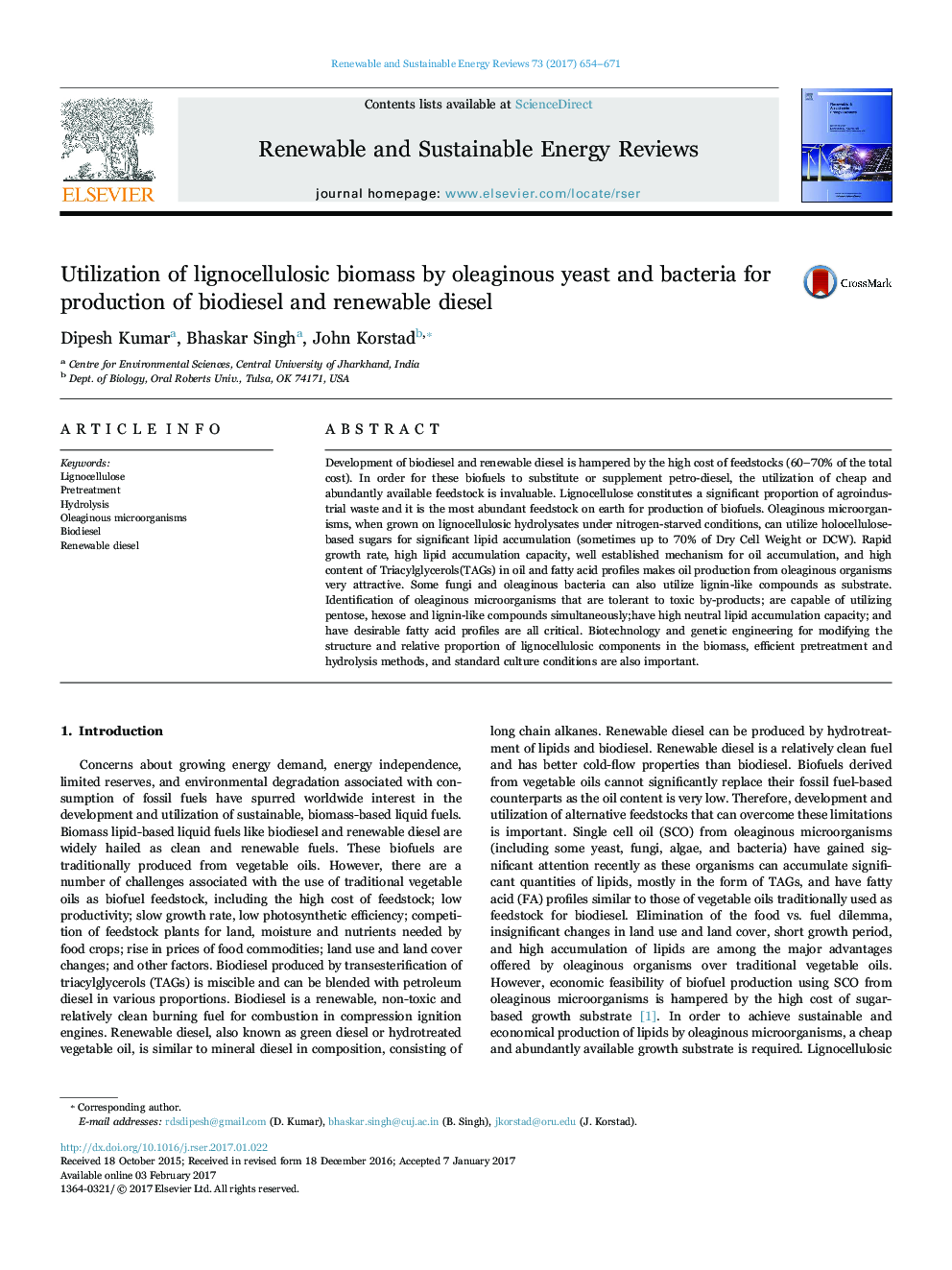| Article ID | Journal | Published Year | Pages | File Type |
|---|---|---|---|---|
| 5482290 | Renewable and Sustainable Energy Reviews | 2017 | 18 Pages |
Abstract
Development of biodiesel and renewable diesel is hampered by the high cost of feedstocks (60-70% of the total cost). In order for these biofuels to substitute or supplement petro-diesel, the utilization of cheap and abundantly available feedstock is invaluable. Lignocellulose constitutes a significant proportion of agroindustrial waste and it is the most abundant feedstock on earth for production of biofuels. Oleaginous microorganisms, when grown on lignocellulosic hydrolysates under nitrogen-starved conditions, can utilize holocellulose-based sugars for significant lipid accumulation (sometimes up to 70% of Dry Cell Weight or DCW). Rapid growth rate, high lipid accumulation capacity, well established mechanism for oil accumulation, and high content of Triacylglycerols(TAGs) in oil and fatty acid profiles makes oil production from oleaginous organisms very attractive. Some fungi and oleaginous bacteria can also utilize lignin-like compounds as substrate. Identification of oleaginous microorganisms that are tolerant to toxic by-products; are capable of utilizing pentose, hexose and lignin-like compounds simultaneously;have high neutral lipid accumulation capacity; and have desirable fatty acid profiles are all critical. Biotechnology and genetic engineering for modifying the structure and relative proportion of lignocellulosic components in the biomass, efficient pretreatment and hydrolysis methods, and standard culture conditions are also important.
Related Topics
Physical Sciences and Engineering
Energy
Renewable Energy, Sustainability and the Environment
Authors
Dipesh Kumar, Bhaskar Singh, John Korstad,
